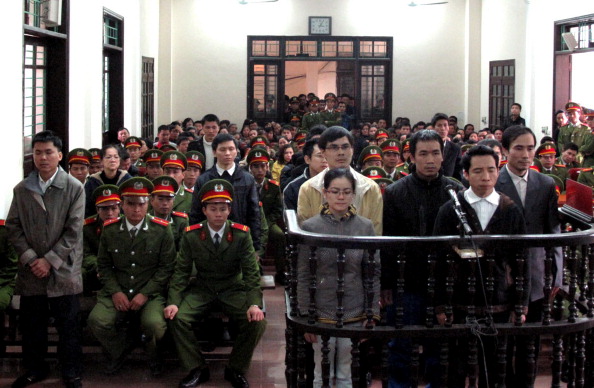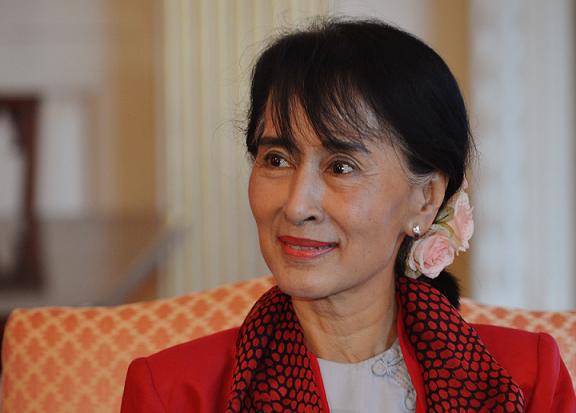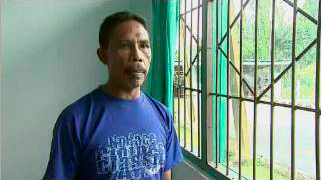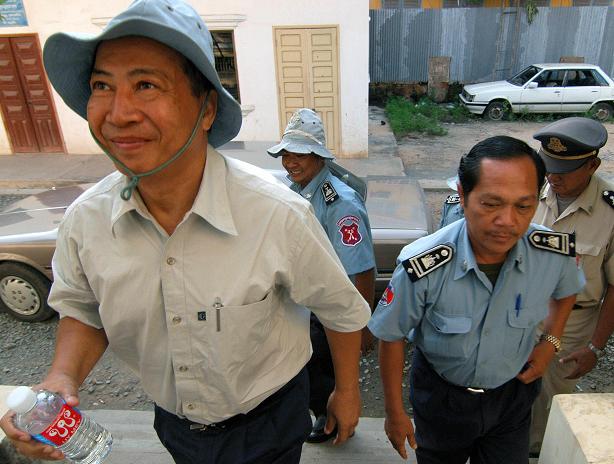
Activists accused of plotting to overthrow the communist regime stand listening to verdicts at a People’s Court in Vinh city, in the north-central province of Nghe An on January 9, 2013. Vietnam on January 13 jailed 13 activists convicted of plotting to overthrow the communist regime, in a new crackdown criticised by the US as part of a “disturbing” trend in the authoritarian state. (Vietnam News Agency/AFP/Getty Images)
I sit at my desk and write about human rights with ease, yet in Viet Nam, blogging can land you in prison. Last week, Vietnamese authorities convicted 14 activists for plotting to overthrow the government under article 79 of the criminal code. The sentences range from three to thirteen years. The activists were all linked to the US-based, pro-democracy group Viet Tan, which the Vietnamese government labels a terrorist organization. Five of the sentenced activists are bloggers who wrote about freedom of expression. Before the start of the trial, one of the bloggers, Dang Xuan Dieu, said, “I have done nothing contrary to my conscience” and that in punishing him, the government was “trampling on the eternal good morals of the Vietnamese nation.”
The defendants were all charged after attending a Viet Tan training course held in Bangkok in 2011. Viet Tan led a resistance movement in the 1980s, but has more recently called for democracy and peaceful change in Viet Nam. A spokesperson for the Office of UN High Commissioner for Human Rights said that none of the activists were alleged to have used violence.



